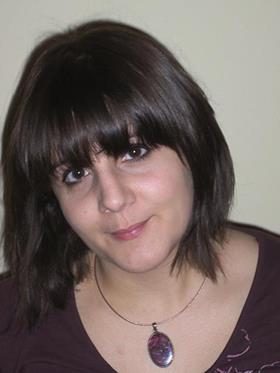Donna has spent the past three years working as a project manager at Pera. She talks to Rachel Bolton-King about her typical day

Pera is a research technology organisation that supports small- to medium-sized enterprises (SMEs) to develop new products by getting funding from UK or European public funding programmes for collaborative R&D projects. Donna is part of the environmental technologies department at Pera’s Melton Mowbray site. There are 14 staff in her department and Donna’s work focuses on environmental research projects, such as developing new technologies for cleaning up contaminated land.
Biodegradable packaging
Currently Donna manages five research projects proposed by SMEs that do not have the capabilities to develop their innovations. Her role is to coordinate the technical delivery of each project, manage its finances so that the work is completed within budget and report developments to the funding bodies over the project’s lifetime, which can be up to three years. A £1 million-funded project focuses on developing a starch-based biodegradable packing material, Starpack, to be used instead of polystyrene. Donna’s first task on such a project is to identify and recruit partners, eg companies and universities, who have the R&D expertise to complete the project. For the Starpack project, partners include raw starch material suppliers, Leicester University and Morphy Richards (which will use the material to package its products).
At the start of a project Donna organises meetings with the partners to discuss the project, develop a work plan and decide who is going to do what. Then the product development begins. In the case of Starpack, chemists at Leicester University formulate recipes of starch material and Donna and colleagues test these new materials using tensile (strength), compression and stress tests in Pera’s analytical laboratory. By testing and comparing the data for each starch formulation with data for polystyrene, Donna determines the most robust formula and product shape. Scientists at Morphy Richards also do drop tests on this optimised starch material to ensure toasters do not break during transportation and storage. Donna then determines how long the material takes to biodegrade and suitable storage conditions using humidity testing.
During a project Donna keeps in regular telephone contact with all the partners and the funding bodies. To coordinate the work of the partners, she organises quarterly review meetings where representatives from all the partners present results of work done. Donna chairs these meetings which aim to resolve any issues, identify work which needs to be done in the next three months and review the project’s finances to ensure that it is on budget.
Based on these meetings Donna writes quarterly reports that detail test procedures, results and her conclusions, and these are circulated to the partners. These reports also inform the funding bodies that their cash is being spent appropriately and that work done conforms to the project outcomes. At the end of a project, Donna passes all data and testing procedures on the new product to the SME for its continuous product development.
European travel
Working with a diverse range of professionals based across Europe means that Donna travels regularly to meet project partners. She enjoys being involved in cutting-edge scientific research that results in commercially successful products, which benefit the environment.
Pathway to success
2006–present, project manager, Pera, Melton Mowbray
2003–06, PhD in green and sustainable chemistry, Leicester University
1999–2003, MChem chemistry (2.i), Leicester University
1997–99, chemistry, physics and sociology A-levels, Cadbury College, Birmingham
PhD student, Rachel Bolton-King was given a grant by Chemistry: the next generation (C:TNG) to write this article in collaboration with Education in Chemistry.
This article was originally published in InfoChem









No comments yet